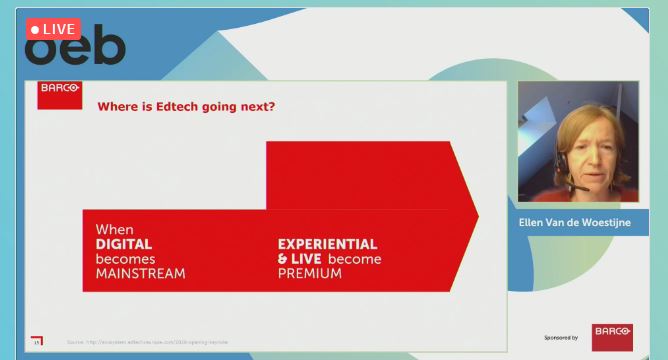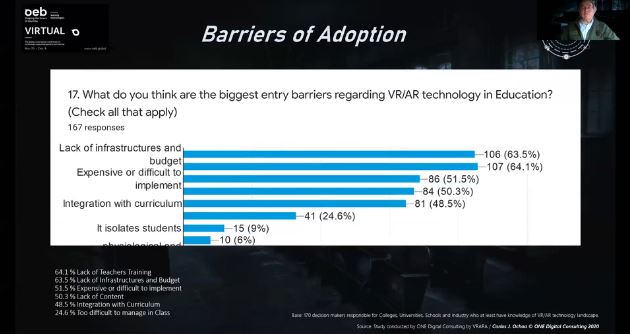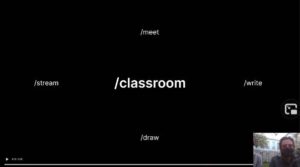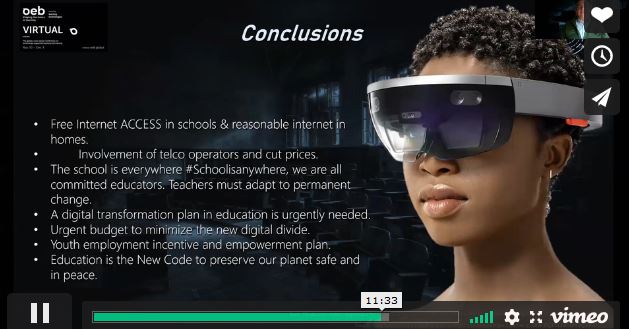In size of investment, the digitization of education markets is supposed to be comparable to the global car markets. The pandemic even enforced this perspective. Learning and development play a significant role in XR adoption for enterprises and institutions. Being a hot topic at this year’s digital media conferences, Online Educa Berlin focused on learning technology and gave insights to actual and future L&D initiatives.
OEB 2020 took place as a Global Virtual Experience: the three-day conference streamed lectures, panels and product presentations. The scope of themes was enormous. Personal experience exchanges, comparison of learning systems, political education frameworks, global and continental analysis snapshots, innovative technologies and operational service promotions were on offer as well as debates on socio-political implications, diversity issues and market adoption researches.
While the conference managed to establish a common platform for all these varieties of topics, the general landscape of the learning tech environment is a very scattered one. Whenever you dig a little deeper into details, the range of players stretches from big tech companies and hardware niche suppliers up to individual local initiatives. This makes it difficult to even imagine something like a level playing field in the learning tech and digital education segments.
Infrastructure logistics, security and privacy concerns were the most discussed issues. In this context, it was interesting to note the move from traditional tech suppliers like Barco from cinema tech into the learning tech segment by offering turn-key classroom solutions. But I was also very impressed by alternative classroom solutions like the one presented by Berlin’s Universität der Künste, where the campus organization was entirely digitized on an autonomous and independently managed intranet system.
XR was frequently used for promotion in image films of online learning platforms at OEB 2020, and the education chapter of VRARA presented a very optimistic market outlook on XR adoption in schools and universities. But as long as the digitization of traditional education areas still struggles with legal, organizational and political groundworks, a more experience-oriented learning approach will have to look out for occasional chances to prove its groundbreaking optimization. This is fundamentally different in the professional learning environment where XR could be established in line with remote manual operations and advanced training programs.
The digital conference platform of this year’s OEB Global Virtual Experience put both of these worlds on the same level. The unifying digital presentation format gave you the impression that digital education seamlessly passes into digital working environments. But this only holds for the great variety of all 15-minute presentations on this conference streaming platform. A real-world exhibition would have made much more palpable how fundamentally different the challenges in education and training are – and how far we still have to go for a continuously digital learning experience from school to work.






